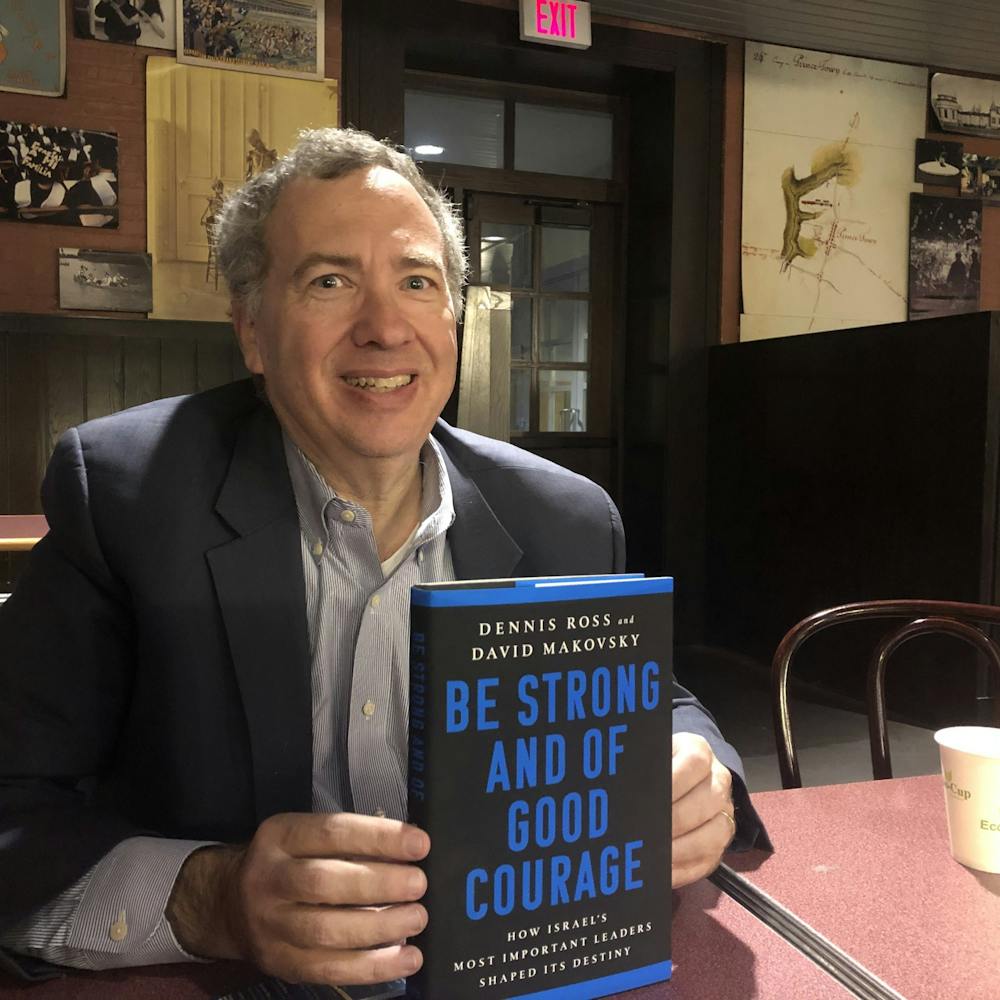David Makovsky has built a career out of studying and reporting on Middle Eastern politics and the Israel-Palestinian conflict. An author, journalist, teacher, and most recently a podcaster, Makovsky sat down with the Daily Princetonian to discuss the Middle East, his career, and his new book, Be Strong and of Good Courage: How Israel’s Most Important Leaders Shaped Its Destiny.
The Daily Princetonian: For starters, what is your background? Where did you study, what did you major in, and how did that impact the direction of your career?
David Makovsky: I grew up in St. Louis. When I was seventeen years old, I had a very formative experience, and I thought that was a coming-of-age moment for me. It was Anwar Sadat’s historic visit to Israel in November 1977. It was an electrifying moment of the 20th century, that the leader of the largest Arab country said you know what, I’m getting on a plane, and I’m going to show up and speak at the parliament of the other side and tell them I don’t want war anymore. It was a heroic moment, and I thought, there have been wars between the Arab states and Israel 1948, 56, 67, 73, and here’s the leader of the biggest Arab country saying “I want to end it.” That impacted me.
I went to Columbia as an undergraduate. I studied history and international relations. I ran an international student organization. I went to graduate school. I went to Harvard. I did my masters in Middle Eastern Studies. I thought I wanted to be a journalist and did that for eleven years. I came back, at the end of that adventure, that life. I’ve been at this think tank at the Washington Institute for 19 years. I teach graduate students at John Hopkins. I worked in the office of the Secretary of State during the peace negotiations that Secretary of State John Kerry was conducting with Israelis and Palestinians. I’ve been very fortunate.
DP: What first got you interested in studying the Israeli-Palestinian conflict?
DM: It was the Sadat visit. I thought these two sides were fated to fight wars every ten years, and suddenly, this leader comes from out of the blue and said, “Enough. I want to end it.” And indeed, there was an Egypt-Israel Peace Treaty of 1979. If I look at my formative experience, it was really the Sadat visit, because until then, the idea of peace between Israel and the Arabs was unthinkable. Now we have something new. It’s beyond anything that people thought was possible five years ago.
DP: You talked about how you’ve been a journalist. How did your time as a journalist influence not only your opinions on the conflict but also the progression of your career?
DM: I was there as a journalist during the “Golden Age” of the nineties. The nineties was, you know, the Cold War had just ended, the Gulf War had just ended, and Israel had a gifted leader that we write about named Yitzhak Rabin. He was one of the four leaders we write about. He broke through the conundrum that people used to say, “If you’re strong, you don’t have to compromise. If you’re weak, you don’t have to compromise.” He said, no, it’s when you’re strong that you should want to compromise. He paid for his life with his views. He was killed by an Israeli in 1995. Covering that Rabin period, traveling around the world, to travel with him, to be there when a lot of these openings started, I felt like I had a front row seat to history in the nineties that these conflicts were solvable.

DP: You were just talking about how you’ve given talks in multiple college campuses, and you yourself are a professor at John Hopkins. What do you think about student involvement in the Israel-Palestinian conflict? What are important things students should know?
DM: My hope is that students will come together for coexistence. I would like to see more Jewish-Americans and Muslim-Americans come together and look for solutions. Even if it means study tours to the region, visiting communities of each side, in this time of great polarization in the United States, we need more bridges. We don’t need more bypass roads. We need more light and less heat.
DP: Can you tell us about your book?
DM: The book is called Be Strong and of Good Courage. We feel that people are very despairing in this era of polarization. The idea is to write about four journeys, four leaders in Israel who made historic decisions against long odds. They met the bar of history. After the 2016 election, I came to Dennis [Ross, the book’s other co-author] and said, “We have to inspire people.” People in this era of polarization, everyone goes into their own corner. They think that problems are too big and the leaders are too small. We got to show them that there we’re leaders who met extraordinary challenges. We hope it’ll inspire young people and older people, too, to want to know more about the conflict. We want people to engage and be hopeful in waging the battle for coexistence.

DP: Is there anything you’d like to add?
DM: We hope it’ll inspire people to want to learn more and want to engage.








